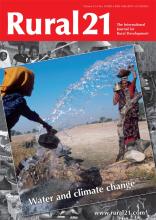Land Library Search
Through our robust search engine, you can search for any item of the over 73,000 highly curated resources in the Land Library.
If you would like to find an overview of what is possible, feel free to peruse the Search Guide.
/ library resources
Showing items 1 through 9 of 10.Tài liệu “Chồng lấn quyền sử dụng đất: Thách thức cho quy hoạch và quản lý rừng đặc dụng ở Việt Nam” tổng hợp một số đánh giá ban đầu từ các nghiên cứu của Trung tâm Con người và Thiên nhiên (PanNature), Trung tâm Tư vấn và Quản lý Tài nguyên (CORENARM) cùng Trung tâm Phát triển Nông thôn miền Tr
This report provides comparative insights into land-taking disputes in three East Asian countries—China, Indonesia, and Cambodia—that are relevant to Vietnamese conditions.
This document represents the country report for Vietnam’s national LGAF Study. This Study was undertaken by team of national experts, with support from the World Bank, and in collaboration with the Ministry of Natural Resources and Environment (MoNRE) in 2013.
Các nội dung chính của bản tin kỳ này:
- “Xanh hóa” ngành ngân hàng: Áp dụng chuẩn mực bắt buộc hay khuyến khích tham gia tự nguyện?
- Thu phí tham quan ở một số vườn quốc gia
- Tăng cường quản lý các dự án thủy điện
The book analyzes and explains the causes of corruption in land
administration and the existing types of corruption. Based on the analysis of
the types of corruption and identification of the risk factors that are
The report provides recommendations on improving land policies to ensure the efficiency of their practical implementation and to target them at both economic development and social sustainability.
Juste après le tremblement de terre, en janvier 2010, la GTZ a lancé en Haïti un projet d'aide alimentaire d'urgence avec plusieurs partenaires. En l'espace d'un mois, environ 1 000 tonnes de vivres ont été distribuées.
The world food crisis has spurred foreign direct investments (FDI) into arable land in developing countries. While significant financial inflows into agricultural sectors could be beneficial on a global scale, it could negatively affect local livelihoods.
Dar es Salaam is one of the fastest growing cities in sub-Saharan Africa. In its rapidly expanding peri-urban fringe poor migrants from distant rural areas settle down on plots they can afford that provide access to urban markets.




